The words diversity, equity, and inclusion have been at the forefront of many conversations during the past few years. In late March, the Bloustein School hosted an event focusing on the disability community, and disability justice in particular.
“Some of the attention is welcome, some of it is not. But we don’t get to choose the environment in which we operate,” said Dean Stuart Shapiro in his opening remarks. “All we can choose are our values and our commitment to upholding them. At the Bloustein School, diversity, equity, inclusion, and belonging are our values.”
The event aimed to raise awareness of ongoing issues and advocate for recognizing those with disabilities as deserving of equitable treatment and accommodations in all areas of life. It featured several speakers discussing challenges faced by those with intellectual and developmental disabilities (IDD).
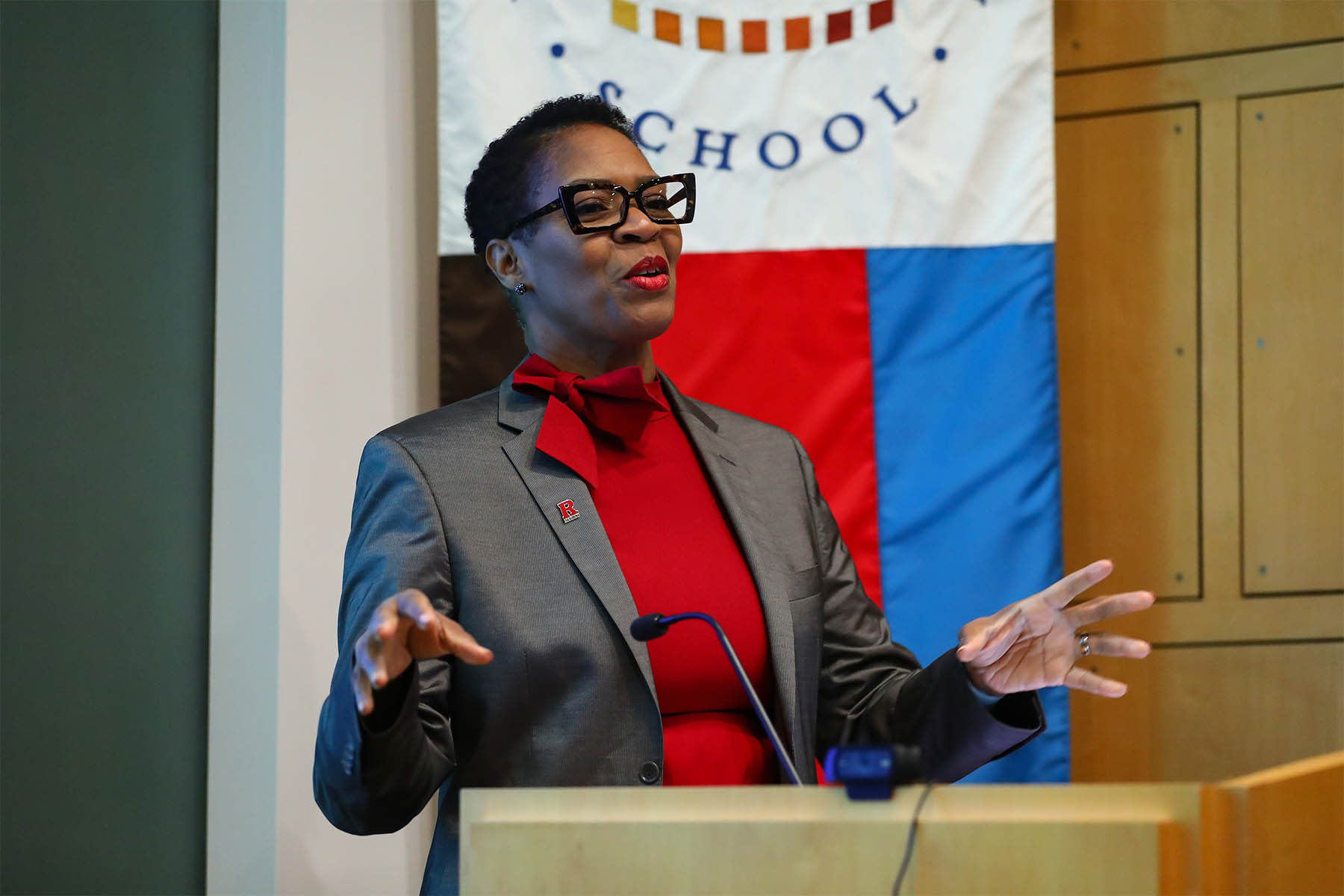
Patti O’Brien Richardson, Professor and Chief DEIB officer for the Bloustein School
Patti O’Brien Richardson, Bloustein School Chief Diversity, Equity, and Inclusion Officer and Associate Teaching Professor, moderated the discussion.
She introduced the event as celebrating the work and experiences of scholars who exemplify diversity, inclusion, and excellence and also inspire others to do the same.
“Disability justice is such a relevant topic and it’s a critical part of inclusion,” she said. “I love the introduction we used on our event flyer because it asks, ‘Are we doing enough to advance the needs of the disability community?’ And I would argue no, which is why this is a very important conversation that we’re embarking on today.”
Bloustein public policy master’s candidate and disability advocate Roni Woitovich provided a brief introduction to disability terminology and language. Her overall message was that language can be tricky and no one term applies to all people. It’s best to communicate directly with those who are disabled about individual preferences, she said.
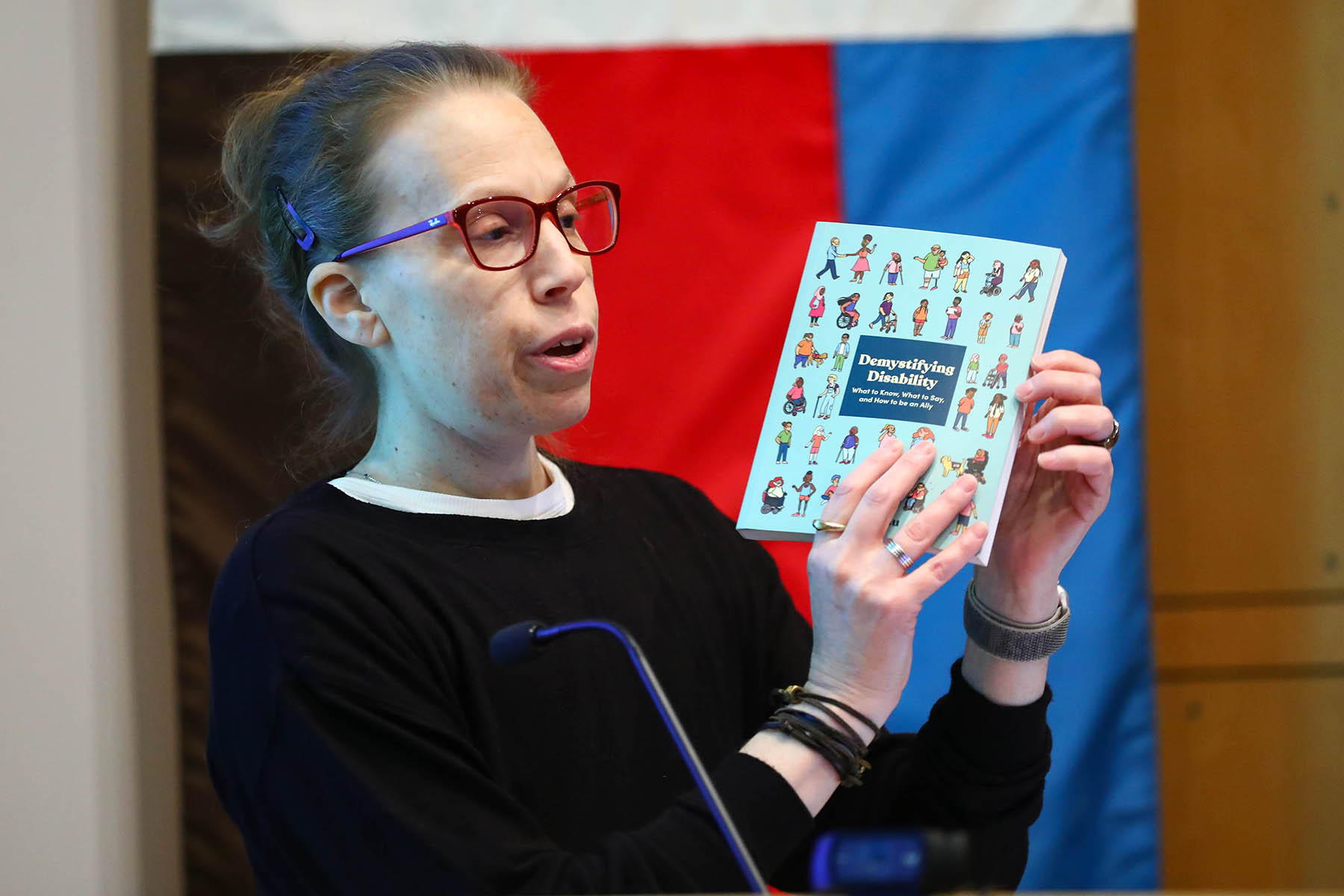
Roni Woitovich, Bloustein public policy master’s candidate and disability advocate
The word “disabled,” she explained, is an umbrella term that encompasses people with physical, ambulatory, chronic illness, neurodivergence, or other conditions that cause impairment.
“In my experience, in my little corner of the world and on the internet, most people do prefer to use the word disabled. Some people are okay with words like “differently abled” or other creative terms. But I think it is most important to realize that people with disabilities are not a monolith,” she said.
Individuals within the disability community have different preferences for “person first” language versus “identity first” language, and it is important to respect individual preferences.
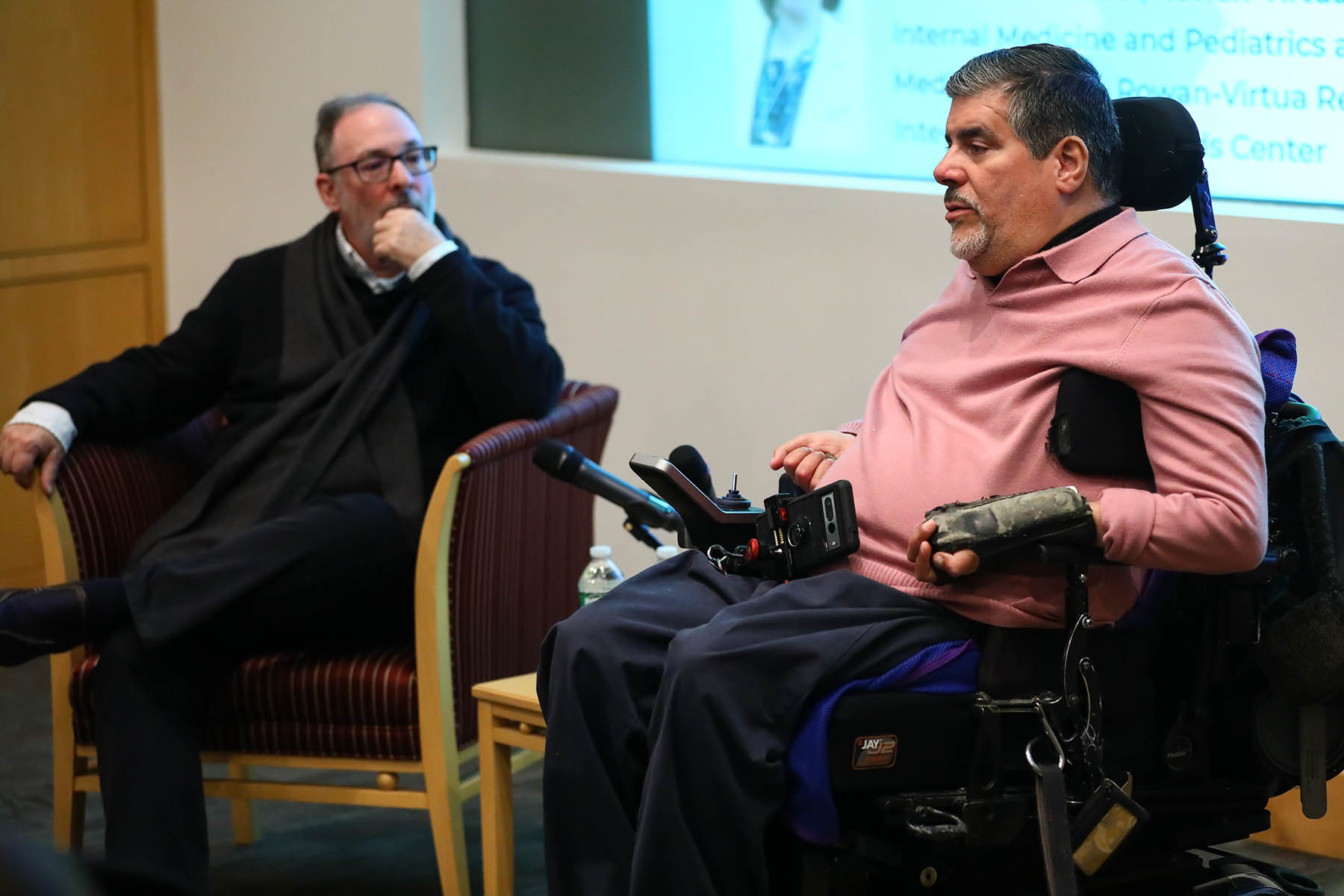
Jeffrey Friedman (left), Professor of Dance Studies at Mason Gross School of the Arts and Javier Robles (right), Professor of Kinesiology and Health, co-chairs of the Rutgers University Disability Studies committee
Javier Robles, Professor of Kinesiology and Health, and Jeffrey Friedman, Professor of Dance Studies at Mason Gross School of the Arts are co-chairs of the Rutgers University Disability Studies committee. They took a few minutes to explain the long process of establishing the Disability Studies minor at Rutgers.
“This took a very committed group of people. We worked through a lot of different issues. Rutgers is not a simple place to try to get things done,” said Professor Robles. “We had to work with issues such as, who is going to pay professors if they are coming from a different department? And, where is the money going to come from? There were so many questions no one had ever really thought about.”
Professor Friedman added, “I think we contacted every undergraduate advisor at Rutgers to ask them, are there content-based materials in their curriculum that have disability content? And if there is content, is it up-to-date on current disability frameworks and theories?”
An even bigger issue, said Mr. Robles, was where the minor would live. Both expressed their thanks to the Bloustein School for stepping up to house the program within the school’s curriculum and further supporting interdisciplinary work on this issue. “As far as next steps,” said Mr. Friedman, “we need the program to settle a bit in order to know what direction to take.”
Poet and advocate Jashar “Shar” Banks ‘23 began by sharing his background growing up in New York City with a single mother. From a young age, he dreamed of becoming a firefighter. He took the first steps toward this dream by obtaining his emergency medical technician (EMT) license while in high school.
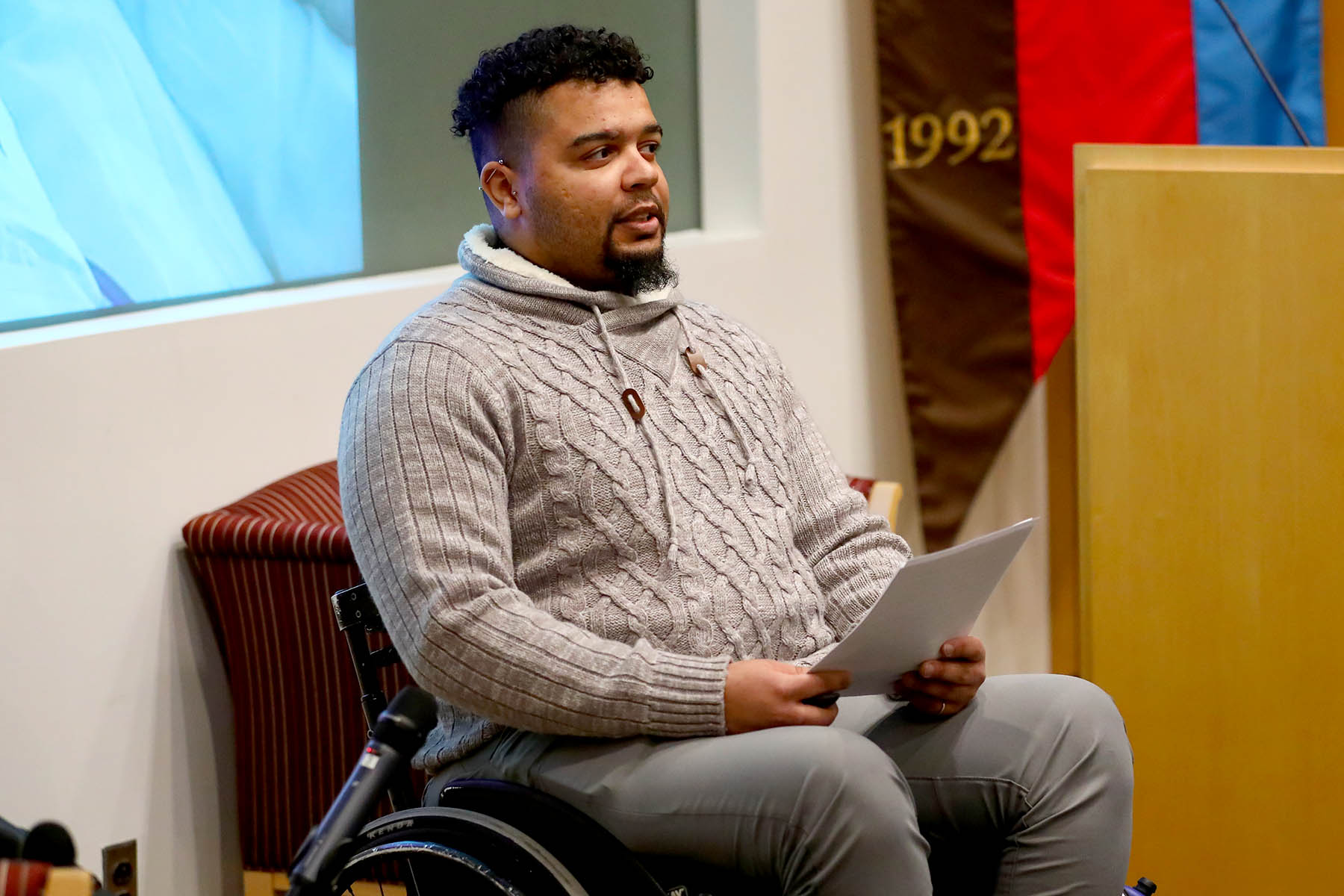
Jashar “Shar” Banks ‘23, Poet and advocate
However, in 2017 he sustained serious injuries, including traumatic brain injury and becoming paralyzed from the waist down, in a motorcycle accident caused by an impaired driver. Mr. Banks lost the independence and aspirations he had been working toward.
“No one plans to be paralyzed. My injuries left me with emotions I had never experienced and was unsure of how to cope with,” he said. “Luckily I was able to reflect on lessons I learned during my upbringing to appreciate what I have and work for what I want,” finding purpose and an outlet through advocacy and poetry.
Mr. Banks recited two poems dealing with depression, emotional exhaustion, and suicidal ideation during his recovery period. He also emphasized that through reflection and setting goals, he has regained his autonomy and mental well-being.
“Believing I had lost my purpose is what set me spiraling toward my lowest moments,” he concluded. “Through self-motivation and peer support, I’m continually working toward the reward of being proud of the man I am. I’m regaining my purpose as I work towards becoming a developmental psychologist, helping youth in underprivileged and troubled communities.”
“Through my experience, I’ve learned that failure is not the opposite of success but instead a part of it.”
To watch the recording of the panel discussion, visit here: Disability Justice: Driving Authentic Change Towards Action
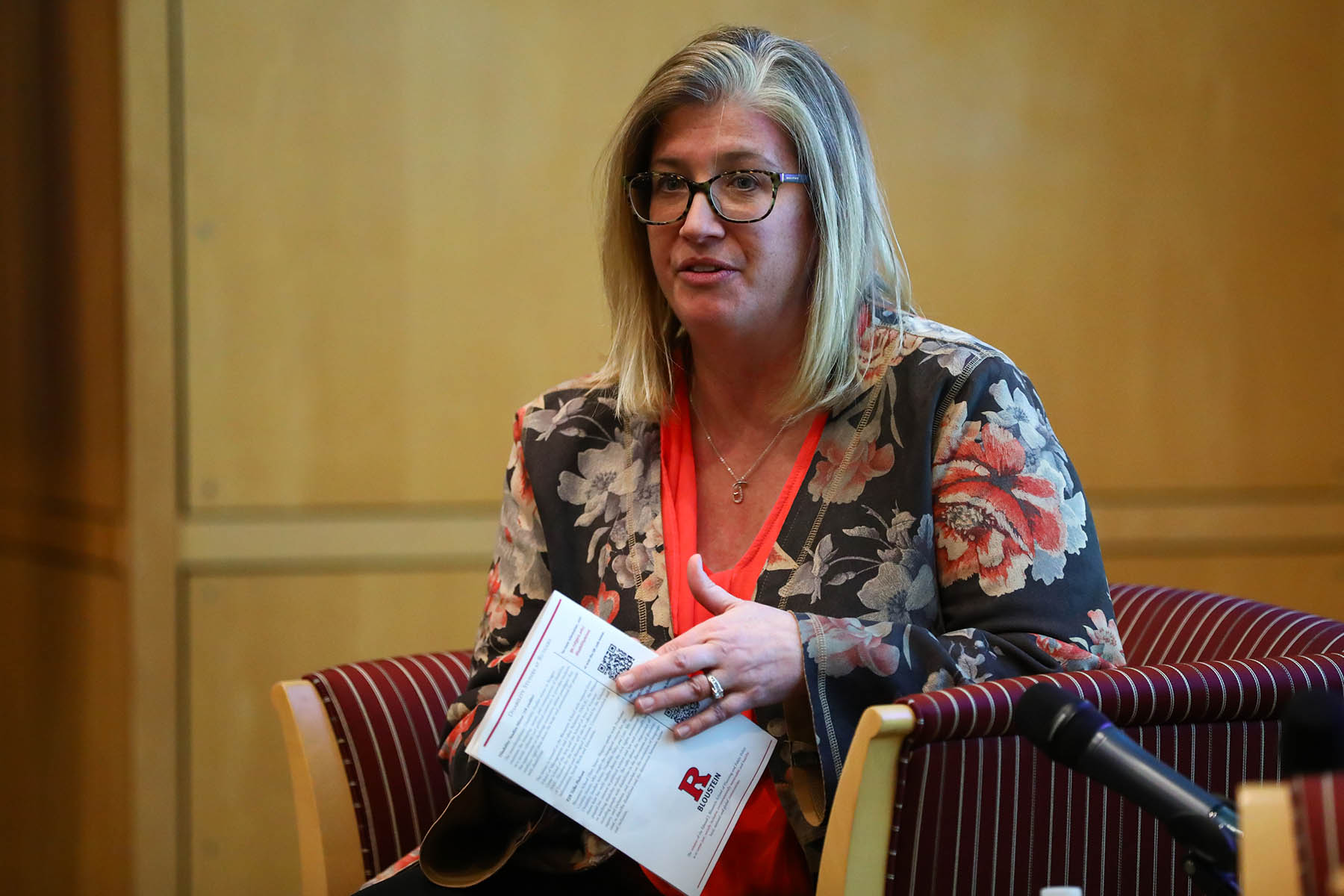
Jennifer M. LeComte, D.O., Associate Professor, Rowan-Virtua SOM, Internal Medicine and Pediatrics and Medical Director, Rowan-Virtua Regional Integrated Special Needs (RISN) Center
The Inclusive Healthy Communities (IHC) Grant Program is an initiative of the Division of Disability Services (DDS), New Jersey Department of Human Services (DHS). It is administered with assistance from the Bloustein School. The IHC program funds New Jersey communities and organizations engaged in projects that promote the health and well-being of individuals with disabilities in the communities where they live.
Drs. Jennifer M. LeComte, DO, and Wendy Aita, Ph.D., are co-directors of the Rowan-Virtua Regional Integrated Special Needs (RISN) Center and recipients of IHC grants for 2021-22 and 2022-23.
The RISN Center is a primary care practice that cares for people with intellectual, developmental, and physical disabilities. Dr. LeComte discussed how RISN Center is improving access to healthcare for these individuals, highlighting disparities they face in getting routine care and untreated conditions.
“People with intellectual and developmental disabilities are often perceived as asexual. So why would they need access to reproductive and sexuality information? Unfortunately, if they don’t receive that education, it often impacts how they gender identify. How they grow emotionally, their self-esteem,” explained Dr. LeComte.
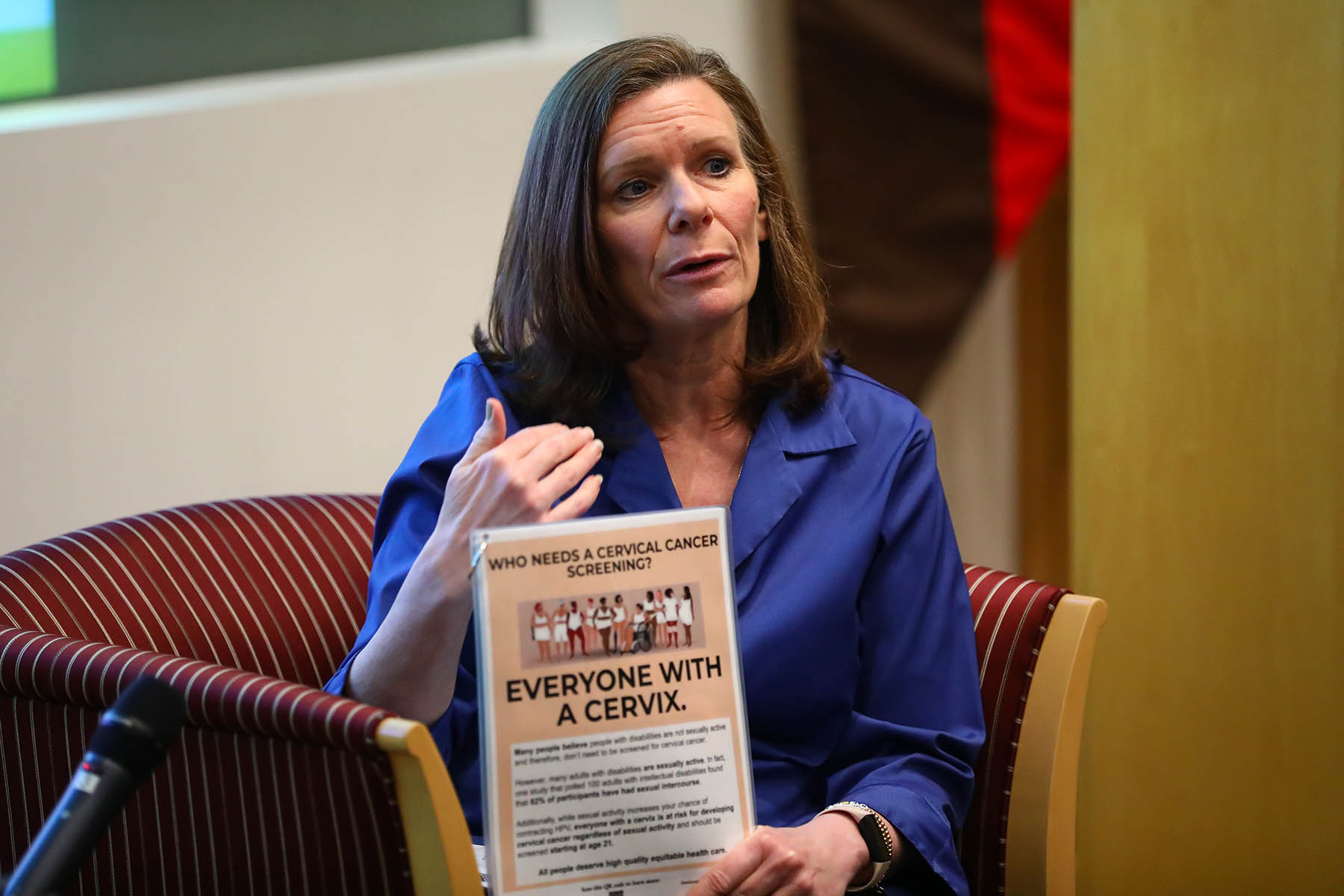
Wendy F. Aita, Ph.D., Co-Director, Rowan-Virtua Regional Integrated Special Needs (RISN) Center and Behavioral Health Lead
Every person, she argued, has the right to exercise choices regarding sexual expression and social relationships. “The presence of IDD, regardless of its severity, does not in and of itself justify the loss of rights related to sexuality.”
Through the funding of the IHC grant, the RISN Center sought to help patients become their own best advocates. The IHC grant allowed them to develop the Pap Camp program, an interactive experience where an individual learns how to calm their body and mind and better process the medical experience.
“In the past, oftentimes women had been sedated in order to get a pelvic exam. Imagine waking up and not knowing what happened to you and just noticing that something feels different ‘down there,’” Dr. Aita said.
“Our goal,” she continued, ”Is to teach people to be their own self-advocate and to get the care in the way in which they need to get it so that they can be successful.”
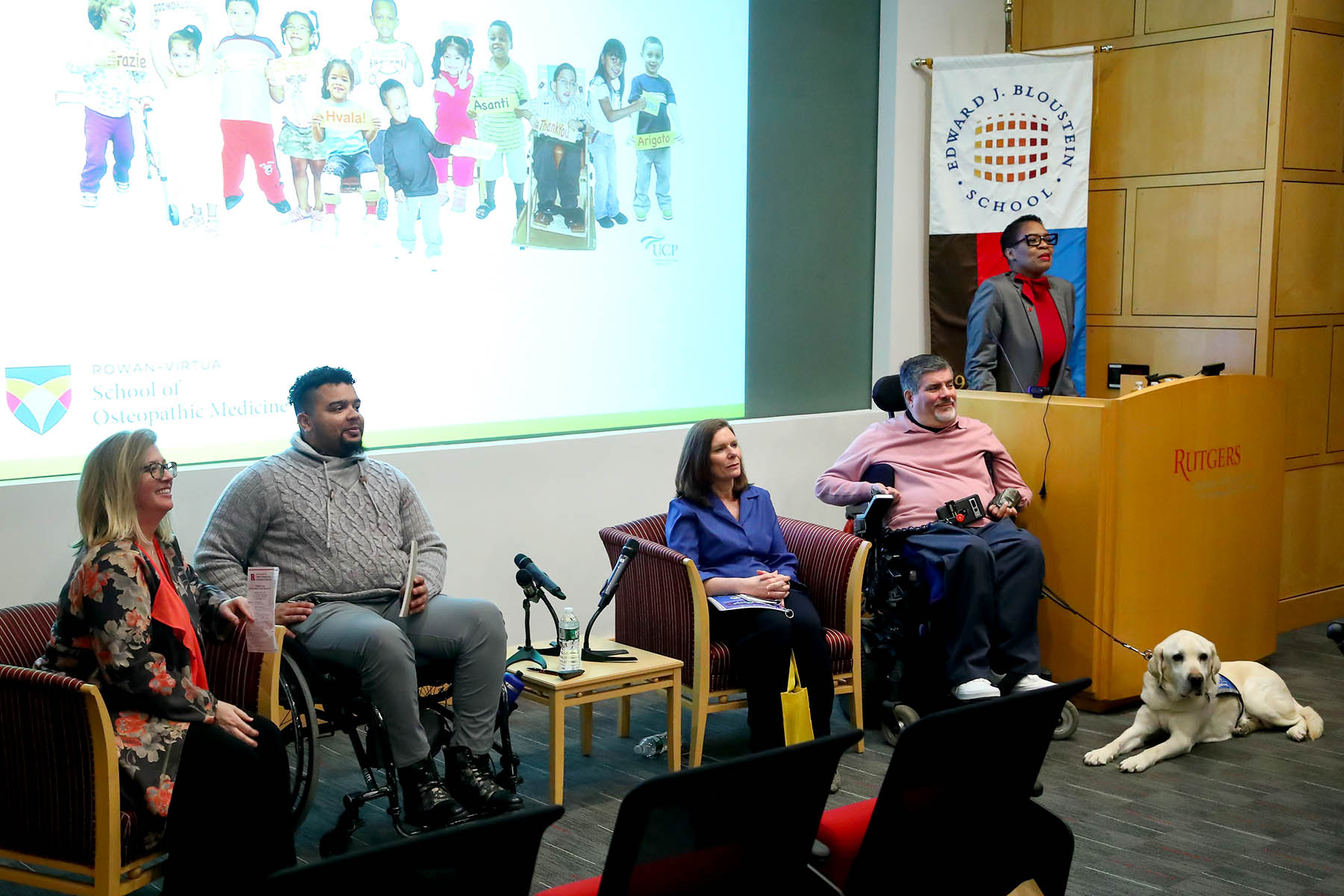
From left to right: Dr. Jennifer LeComte, Jashar “Shar” Banks ’23, Dr. Wendy Aita, Professor Javier Robles and his service dog, Delbert, and Dr. Patti O’Brien Richardson
Both doctors also noted that improving healthcare access to patients with IDD includes screening for abuse and properly evaluating medical conditions by getting past “diagnostic overshadowing,” or perceiving that every behavior or healthcare issue someone has is a result of their disability.
Attendees were able to engage further with the panelists and discuss some challenges and opportunities in more depth during a question-and-answer session. Topics included how to make dental care more accessible and accommodating; transportation barriers; guardianship vs. personal sensitivities; sexual health education; and interdisciplinary collaboration across universities and healthcare systems to disseminate best practices.
Overall, the discussion reinforced that disability advocacy will require addressing systemic barriers through legal and policy work while also changing mindsets in medical education and practice. Individual accommodations as well as much larger reforms are needed to achieve true inclusion and justice.
